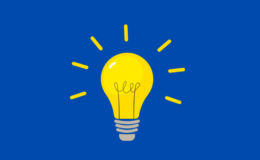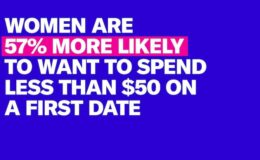To get at the truth of how customers view your products or services, learn to ask the next question. As a newspaper reporter with no formal training, the most challenging part of my job initially was accosting people for interviews. Within a few weeks, however, the most dreaded experience was sitting down with my metro editor to go over any mistakes I’d made earlier in the week with an eye toward improvement.
While analyzing one of my latest stories—an interview of a local politician—my editor remarked of how I let the the representative off the hook by allowing the latter to give a fluff answer that was likely a white lie, something the politician thought wouldn’t cause any harm other than concealing the truth from his constituents.
My metro editor’s words were an ice bath:
“You’ve got to start asking the next question. You’re getting them to answer the question you asked, but you have to start asking the next question, the one they haven’t prepared for and that will yield the truth you’re ultimately after.”
It was like a bell went off inside my head. Though I’d never thought of it before, I was letting interviewees off the hook, because the next question would…
- Help validate the previous answer, and
- Undercover any hidden issues I might not have been aware of previously.
Armed with this knowledge, I went into future interviews prepared to pick at the scabs of not simply the 5 W’s, but also at the possible motivations for those answers with hopes of getting to the real truths.
There is no ‘little white lie’

During a recent meeting with a client, an employee’s quip reminded me of this story and how white lies are anything but insignificant.
“I hate little white lies,” he said, as we talked about the value of transparency. “They really bother me.”
Those words would lie dormant until the following day, when I visited a coffee shop in my area for the first time. The place came highly rated. It was packed with customers. The ambience was great. The servers were friendly and accommodating. However, the Americano I ordered stunk up the joint. It was flavorless, lacked body and was devoid of the all-important crema. Ulgh… But when the server asked what I thought, I lied.
“Nice job,” I said. “I’m an Americano addict. I order them everywhere I go, almost exclusively.”
She smiled and said “Glad you like it.”
I felt a strong twinge of guilt at lying. Most important, I immediately realized how dangerous white lies can be. Like the politician, my thoughts were “Who am I hurting? No one will ever know.” I was fooling myself.

By not being honest, I robbed the business of the opportunity to receive valuable feedback. Also, by not asking the next question, the barista veritably ensured she lost me—and anyone I might have driven to the brand—as a customer. I now vow to be honest when asked my assessment of a product or service.
But because you cannot assume everyone will lose their Pinocchio tendencies, here’s how your brand should ferret out the truth:
Ask… (Using the coffee shop experience as an example)
- What, specifically, did you like about it?
- Who consistently delivers the best Americano experience for you? What makes it so special?
- How does ours compare?
If the barista had asked me those questions, it would have been obvious that the coffee experience I’d just enjoyed had fallen short:
I would have said…
- It was smooth, but not as robust as I would have liked.
- The best Americano I’ve ever had is Caffe Migliore in Seattle. It’s bold, smooth and has incredible crema. Nothing else really compares, but most of the Americanos I have here, even at Starbucks, have some bite and contain decent crema.
- Yours is different than all the others accept one, Storyville in Seattle. That one is smooth like yours and doesn’t contain crema, so it’s my least favorite. It’s not bad; it’s simply not a good choice for me.
Don’t allow customers to get off the hook by not being honest about your products or service. Ask the next question(s) to get at the truth, which will benefit your brand in the long run.
Is your brand asking the next question?





